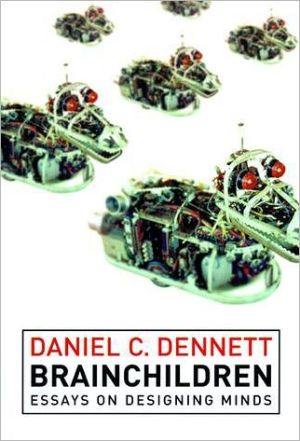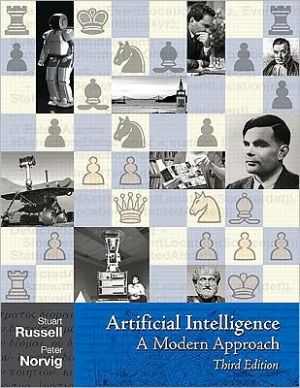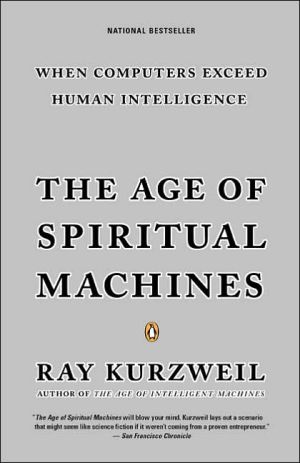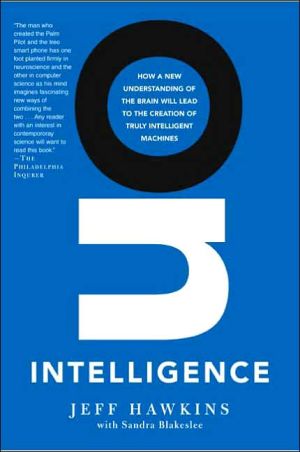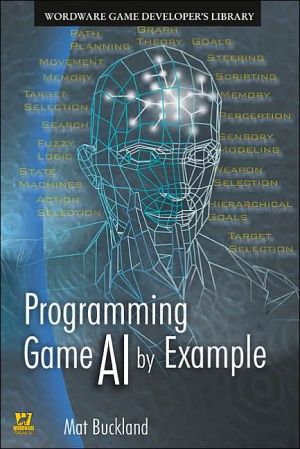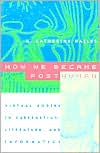Brainchildren: Essays on Designing Minds
Minds are complex artifacts, partly biological and partly social; only a unified,multidisciplinary approach will yield a realistic theory of how they came into existence and how they work. One of the foremost workers in this multidisciplinary field is Daniel Dennett. This book brings together his essays on the philosphy of mind, artificial intelligence, and cognitive ethology that appeared in inaccessible journals from 1984 to 1996. Highlights include "Can Machines Think?,""The Unimagined...
Search in google:
Minds are complex artifacts, partly biological and partly social; only a unified, multidisciplinary approach will yield a realistic theory of how they came into existence and how they work. One of the foremost workers in this multidisciplinary field is Daniel Dennett. This book brings together his essays on the philosphy of mind, artificial intelligence, and cognitive ethology that appeared in inaccessible journals from 1984 to 1996. Highlights include "Can Machines Think?," "The Unimagined Preposterousness of Zombies," "Artificial Life as Philosophy," and "Animal Consciousness: What Matters and Why." Collected in a single volume, the essays are now available to a wider audience. Publishers Weekly The author of Darwin's Dangerous Idea and Consciousness Explained here collects essays from conference volumes and "specialized journals" that have appeared from 1984 to 1996, with the idea of making them available "for students and other readers." But any reader curious about the nuts and bolts of recent theories of mind and our attempts at modeling it will find even Dennett's technical side accessible enough, given a willingness to be occasionally thrown in medias res. The lead essay, "Can Machines Think?" is a clearly formulated reassessment of current contenders for passing the Turing testthe criterion by which thinking machines are judged. "Speaking for Our Selves" evaluates claims for the legitimacy of multiple personality disorder, and extends the discussion into questioning the notion of selfhood. "Real Patterns," which Dennett calls "utterly central to my thinking," is tougher going, as Dennett seems to be addressing an ongoing dispute among philosophers about what it might mean for a belief to be "real," but the essay rewards repeated reading. A section on animal cognition and one on the philosophical possibility of zombies are further draws, but many of the other essays and reviews will hold interest only for the specialist. Throughout, however, Dennett's careful attention to word choice and definition helps the uninitiated along, and reveals one of our most celebratedand controversialphilosophers of mind at work. (Mar.)
Preface1Can Machines Think?32Speaking for Our Selves313Do-It-Yourself Understanding594Two Contrasts: Folk Craft versus Folk Science, and Belief versus Opinion815Real Patterns956Julian Jaynes's Software Archeology1217Real Consciousness1318Instead of Qualia1419The Practical Requirements for Making a Conscious Robot15310The Unimagined Preposterousness of Zombies: Commentary on Moody, Flanagan, and Polger17111Cognitive Wheels: The Frame Problem of AI18112Producing Future by Telling Stories20713The Logical Geography of Computational Approaches: A View from the East Pole21514Hofstadter's Quest: A Tale of Cognitive Pursuit23515Foreword to Robert French, The Subtlety of Sameness24316Cognitive Science as Reverse Engineering: Several Meanings of "Top-Down" and "Bottom-Up"24917Artificial Life as Philosophy26118When Philosophers Encounter Artificial Intelligence26519Review of Allen Newell, Unified Theories of Cognition27720Out of the Armchair and into the Field28921Cognitive Ethology: Hunting for Bargains or a Wild Goose Chase30722Do Animals Have Beliefs?32323Why Creative Intelligence Is Hard to Find: Commentary on Whiten and Byrne33324Animal Consciousness: What Matters and Why33725Self-Portrait35526Information, Technology, and the Virtues of Ignorance367Bibliography385Index401
\ Publishers Weekly - Publisher's Weekly\ The author of Darwin's Dangerous Idea and Consciousness Explained here collects essays from conference volumes and "specialized journals" that have appeared from 1984 to 1996, with the idea of making them available "for students and other readers." But any reader curious about the nuts and bolts of recent theories of mind and our attempts at modeling it will find even Dennett's technical side accessible enough, given a willingness to be occasionally thrown in medias res. The lead essay, "Can Machines Think?" is a clearly formulated reassessment of current contenders for passing the Turing testthe criterion by which thinking machines are judged. "Speaking for Our Selves" evaluates claims for the legitimacy of multiple personality disorder, and extends the discussion into questioning the notion of selfhood. "Real Patterns," which Dennett calls "utterly central to my thinking," is tougher going, as Dennett seems to be addressing an ongoing dispute among philosophers about what it might mean for a belief to be "real," but the essay rewards repeated reading. A section on animal cognition and one on the philosophical possibility of zombies are further draws, but many of the other essays and reviews will hold interest only for the specialist. Throughout, however, Dennett's careful attention to word choice and definition helps the uninitiated along, and reveals one of our most celebratedand controversialphilosophers of mind at work. (Mar.)\ \ \ \ \ Scientific AmericanDennett has got in among my prejudices and changed my mind; this book has opened up new areas of contention for me. This man improves my universe and yours. Enjoy him. - Jack Cohen\ \
